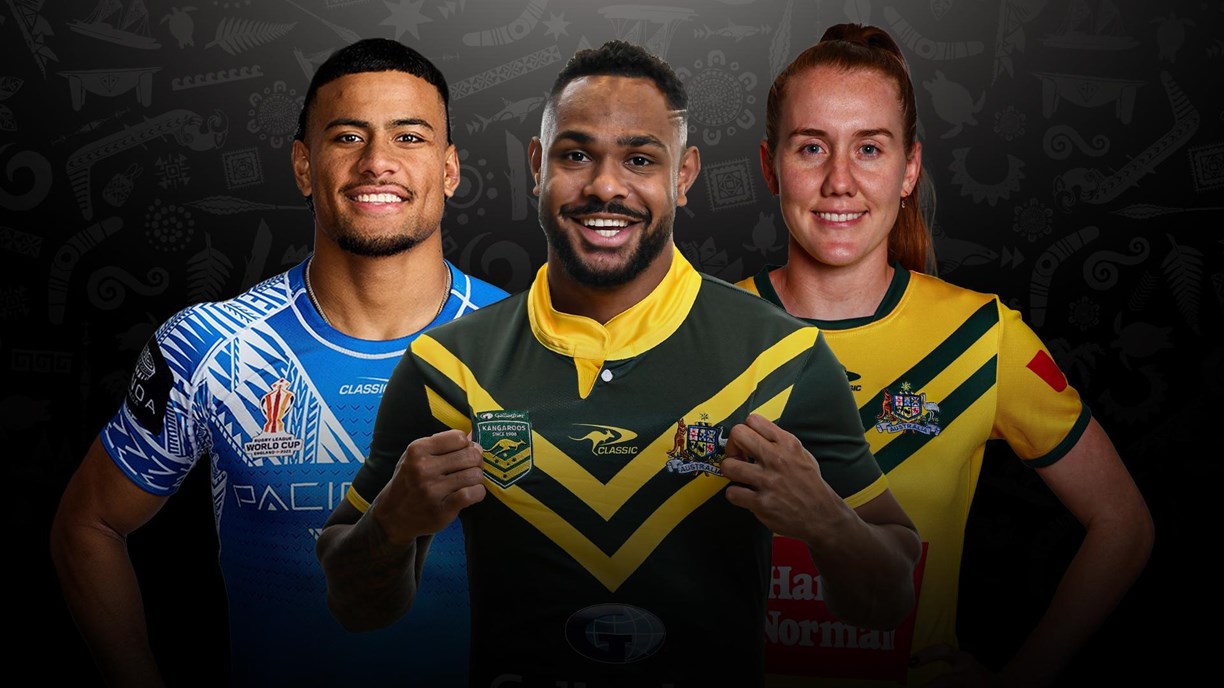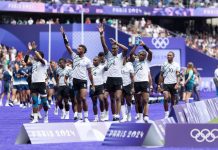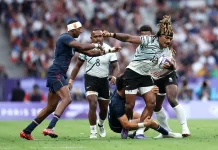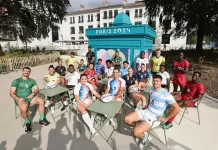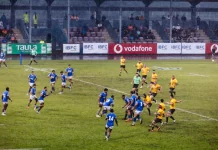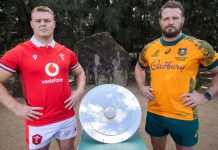The Australian Rugby League Commission believes the inaugural Pacific Championships is the perfect vehicle to build on the momentum of last year’s World Cup and foster the growth of the international game in the island nations.
That hugely successful tournament in the UK breathed new life into the game after the COVID pandemic and NRL CEO Andrew Abdo believes the Pacific Championship can again remind players and fans why representing your country is the pinnacle of our sport.
On the back of a spectacular NRL season, attention turns to the Pacific Championships, with the tournament to be played out across Australia, New Zealand and Papua New Guinea over the next month.
“What we know and love about rugby league is it’s an exciting game to watch, it’s incredibly entertaining and engaging,” Mr Abdo told NRL.com.
“But over and above that, this is probably the most inclusive part of our community and whether you’re a player or you’re a fan, a volunteer, a referee. Anyone in our game is welcome.
“And for me, rugby league is the game that brings us together, not just in Australia, but across our neighbours New Zealand, PNG, Fiji, Samoa, Tonga, Cook Islands.
“It’s a language we all understand regardless of our culture, regardless of our heritage. It truly is the game for all, the greatest game for all.
“For me, that is why rugby league is the game for our region, not just because it’s a great game to watch and to play, but because of the way it brings people together.”
From the long history of battles between Australia and New Zealand, to the rising forces of Samoa, Tonga and Fiji, the international game unites the rugby league community in a unique way.
As cultural pride and patriotic fervour rise to the surface both at the ground and through social media movements, the Test match arena provides an atmosphere all its own.
“State of Origin is special, it’s unique, it’s a rivalry like none other but it is defined and has criteria in terms of who can represent New South Wales and Queensland and those are quite strict and tight criteria,” Abdo said.
“The international game is an opportunity for all players, not just NRL and NLW players, but any eligible player to represent their country.
“When you speak to some of the former players that played a few decades ago where there was a tradition of touring and playing international fixtures on a more consistent basis, they talk very fondly of three things.
“One is the pride in wearing the jumper, whether it’s Kangaroos, Samoa or Tonga.
“Two is the experiences that those matches had for them, the friends they made and the opportunity to play in different countries and stadiums.
“And three, the camaraderie or relationships that they shared with the players from other teams.”
Not only will the inaugural Pacific Champion be crowned in November but each nation’s performance will contribute to their world rankings and could determine whether they qualify for the 2026 Rugby League World Cup.
The ARL Commission recognises that fans need consistency and meaning from the international game and believe the Pacific Championships will deliver it.
“The Commission has always been committed to the growth of the international game and we’ve come off a few disruptive years where COVID prevented us from being able to play the international schedule,” Abdo said.
“The structure of the competition means that we now have the ability, after the grand final, to play regular competitions structured over a number of years, which is meaningful.
“In the past, we’ve only been able to on a weekend in the season or on very restricted time periods play almost like exhibition matches.
“Outside of a World Cup, we’ve not had a tournament like this since the four nations which we used to play many years ago.
“So we moved towards a more structured window where you could play competitions that obviously come with the ability to win a competition, but also world ranking points and then have some structure between World Cups so that you’re building the competitiveness of nations.”
ARLC Chairman Peter V’landys AM said that while the Commission remained invested in Northern Hemisphere rugby league, the growth throughout the small island nations of the Pacific cannot be ignored.
“The Pacific is vitally important to us, it’s a real growth area for the game,” V’landys told NRL.com as the Australian men’s and women’s squads were announced.
“That’s not to say we’re going to forget the Northern Hemisphere because teams from the Southern Hemisphere are going to go over and then teams from the Northern Hemisphere are going to come to the Southern Hemisphere.
“But in the last few years, the Pacific nations have really grown a leg and they’re going to get better and better, and we want to foster that.”
The Pacific Championships will kick off in Townsville on October 14 with rematches of both World Cup finals from last year as Australia face Samoa in the men’s competition and New Zealand in the women’s.
SOURCE: NRL/PACNEWS






